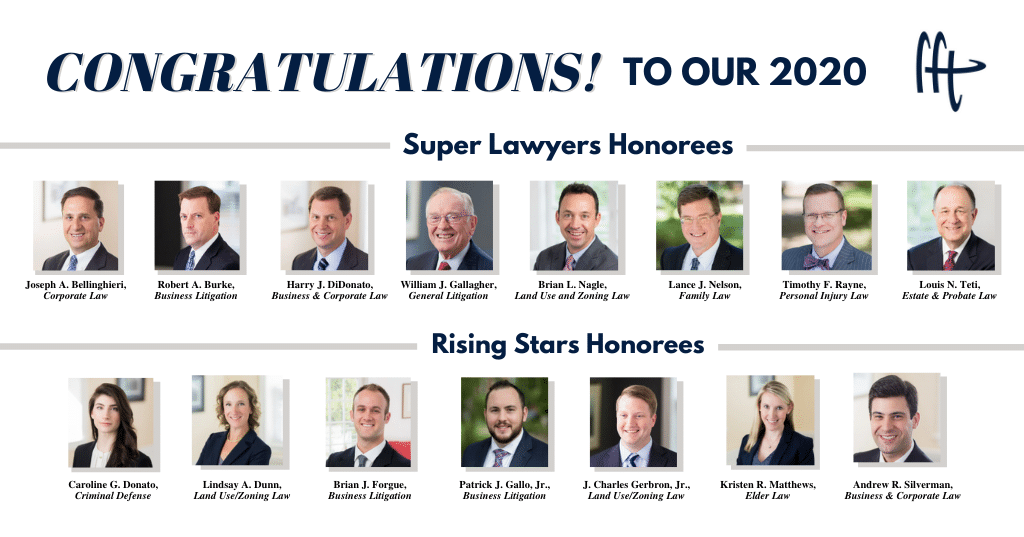
MacElree Harvey is pleased to announce the selection of 15 of its Pennsylvania attorneys to the prestigious list of Pennsylvania Super Lawyers or Rising Stars.
Super Lawyers is a rating service of outstanding lawyers operated by legal publisher Thompson Reuters which rates attorneys in more than 70 practice areas who attain a high degree of peer recognition and professional achievement.
Super Lawyers uses a patented multi-faceted selection process involving peer nominations, independent research regarding 12 indicators of professional achievement, peer evaluation by a Blue Ribbon Panel, and final selection.
Attorneys under age 40 or practicing less than 10 years are eligible for designation as Rising Stars and only 2.5 percent of eligible attorneys are selected. In 2020, MacElree Harvey’s rising stars were:
- Caroline Donato – Criminal Law
- Lindsay Dunn – Land Use/Zoning
- Brian Forgue – Business Litigation
- Patrick Gallo – Business Litigation
- Charles Gerbron – Land Use/Zoning
- Kristen Matthews – Elder Law
- Andrew Silverman – Business/Corporate Law
The Super Lawyers list is limited to only 5 percent of the eligible attorneys. MacElree Harvey’s 2020 Pennsylvania Super Lawyers were:
- Joseph Bellinghieri – Estate and Probate
- Robert Burke – Business Litigation
- Harry DiDonato – Business/Corporate Law
- William Gallagher – General Litigation
- Brian Nagle – Land Use/Zoning
- Lance Nelson – Family Law
- Tim Rayne – Personal Injury
- Louis Teti – Estate and Probate
Harry DiDonato and Lance Nelson earned special designations in 2020 because they have been named as Super Lawyers for the last 10 years.
Tim Rayne was named as a Top 100 Super Lawyer in Pennsylvania.
“The firm is honored and humbled to have more of our attorneys named to the 2020 Super Lawyer/Rising Star list than any other Chester county-based law firm,” said Firm CEO Michelle Foster.







